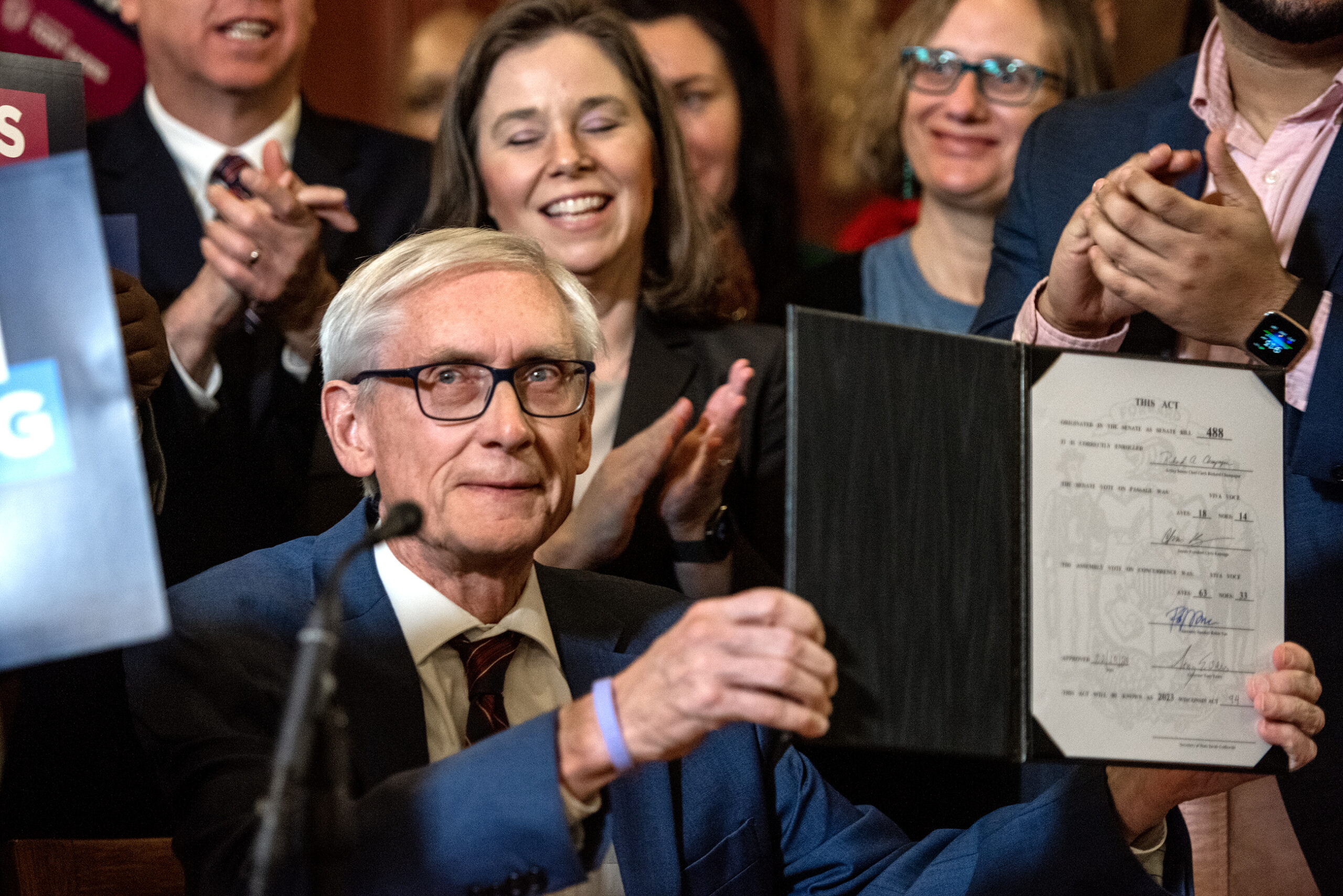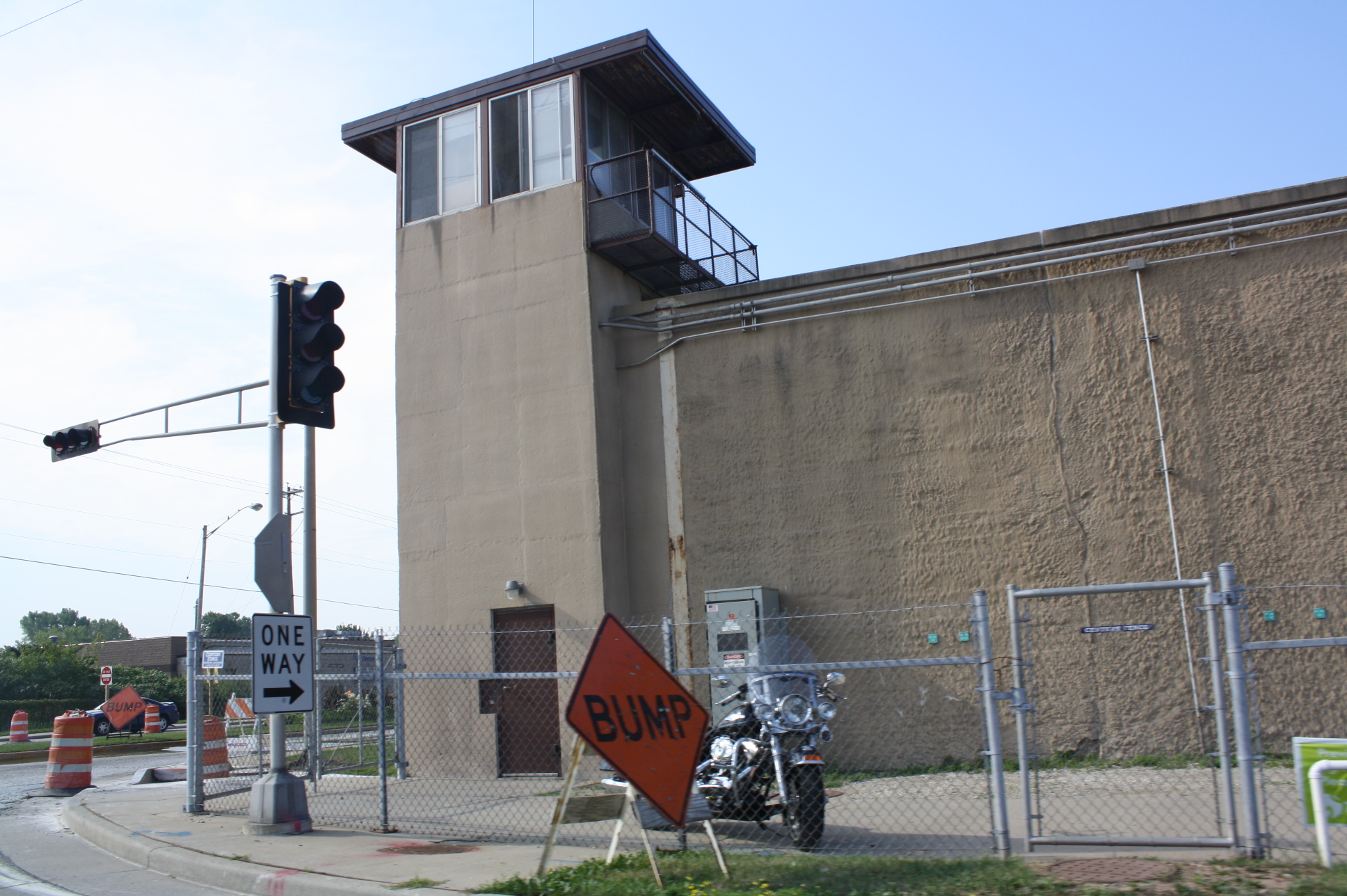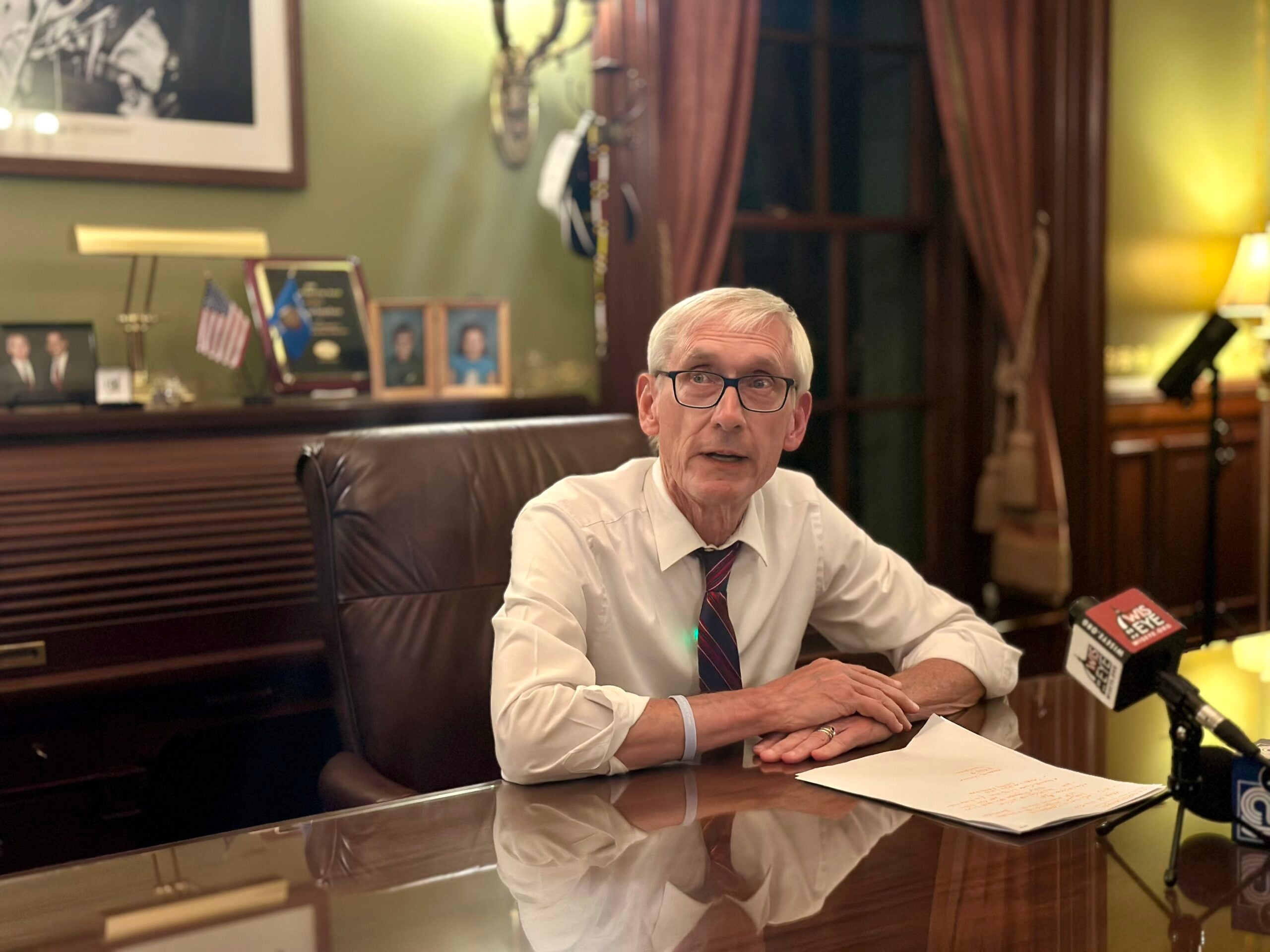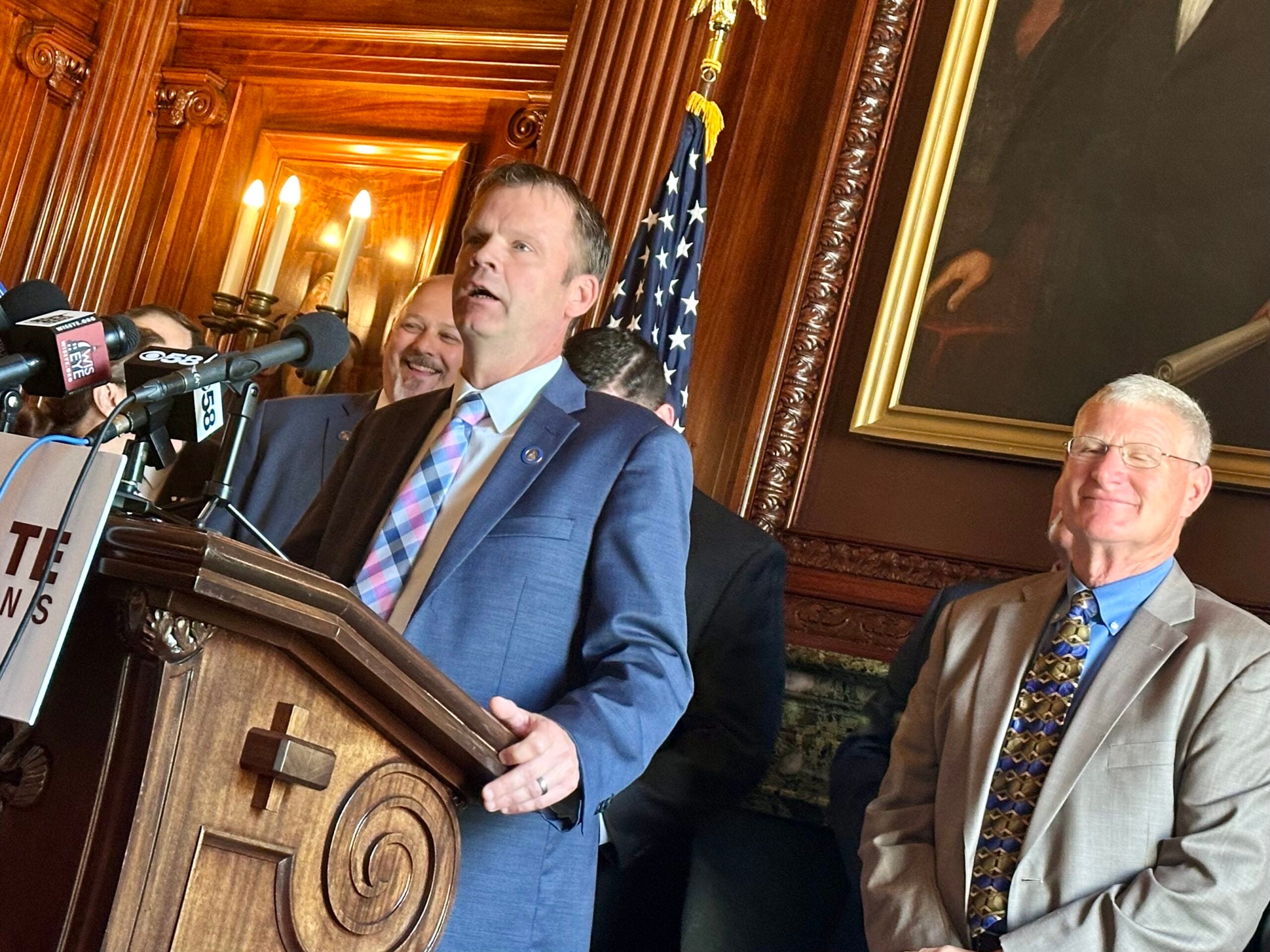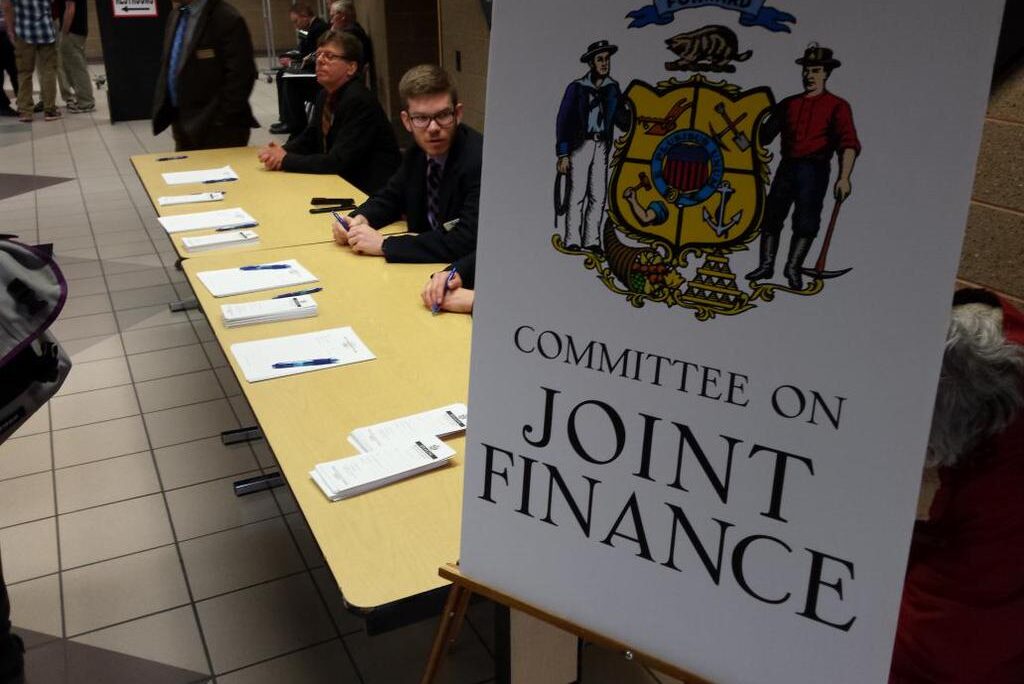Republicans in the Wisconsin Assembly passed their version of Wisconsin’s state budget Tuesday night, tacking on a provision to let Tesla sell its cars directly to consumers in an effort to lock down GOP votes.
The version of the budget that passed the Assembly on a 60-39 vote would also tweak a study of mileage-based tolling in Wisconsin, a move that could open the door to toll roads in Wisconsin.
Those moves and others are aimed at getting key GOP lawmakers in the Senate onboard with the two-year spending plan. Two GOP state senators said last week they wouldn’t vote for the budget, leaving Republicans with no wiggle room if they want to pass the budget without help from Democrats.
News with a little more humanity
WPR’s “Wisconsin Today” newsletter keeps you connected to the state you love without feeling overwhelmed. No paywall. No agenda. No corporate filter.
The Tesla provision unveiled Tuesday would let the company sell cars directly to consumers instead of selling them through auto dealers. It’s been championed in the Legislature by Sen. Chris Kapenga, R-Delafield, one of the conservatives in the Senate whose budget vote was seen by many as up for grabs.
The Milwaukee Journal Sentinel reported Tuesday that Kapenga owns a business that rebuilds Teslas. Kapenga told the newspaper he doesn’t make money from the business.
The mileage-based fee study was added to the budget by Republicans on the Legislature’s Joint Finance Committee, and as originally written, the members of that committee would have had the power to vote it up or down.
Under the amendment unveiled Tuesday, the plan would now study both mileage-based fees and tolls. Whatever the state Department of Transportation decides after the study would be included in its budget recommendation, which would be debated by the full Legislature.
The changes unveiled Tuesday will also add 35 assistant district attorney positions to the budget, a proposal championed by Sen. Andre Jacque, R-De Pere.
Another new provision unveiled Tuesday would increase town road funding by $5 million.
GOP leaders said they would also slightly reduce the property tax increase that would be allowed under this budget. The version of the Republican budget that passed the finance committee earlier this month increased property taxes at the same level as the governor.
Assembly Speaker Robin Vos, R-Rochester, told reporters Tuesday he couldn’t say for sure that the latest version of the budget would win the support of conservatives in the Senate, but he said he thought they should.
“If you’re a conservative and you don’t vote for this, you’re going to have answer why you are against income tax relief, why you are against funding for an awful lot of things that are important to Wisconsinites,” Vos said. “Because in my experience, if for some reason we would not adopt this budget, it would not become more conservative going forward.”
In addition to the changes Republicans added, new details of the budget came to light Tuesday, showing Republicans would fall just short of a key school funding benchmark they said they would hit.
When GOP lawmakers introduced their version of the education budget in May, they said it would mean a return to the state picking up two-thirds of the cost of education. That benchmark was required by law in the 1990s, but was repealed in the early 2000s.
An analysis of the Republican plan by the Legislature’s nonpartisan budget office showed it would pick up 65.1 percent in the first year of the budget and 65.5 percent in the second year.
“Promises made, promises broken by the Republican Legislature when it comes to public education,” said Assembly Minority Leader Gordon Hintz, D-Oshkosh. “Promising two-thirds funding was a nice soundbite to distract from inadequate public school funding.”
Under the budget introduced by Evers in February, the state would have picked up 66.7 percent of public education costs in the first year of the budget and 68.6 percent in the second year.
Both budgets would increase state spending on schools but by substantially different amounts.
Evers’ budget would have increased school funding by $1.4 billion, while Republicans would increase it by about $500 million, a roughly $900 million difference.
Overall, the Republican budget would spend roughly $81.7 billion over the next two years when all funds are included. That’s about $4.3 billion more than the current state budget but $2.1 billion less than Evers wanted.
Republican Sen. Steve Nass, R-Whitewater, and Sen. David Craig, R-Big Bend, both said last week the budget spends too much to win their votes. They also complained about vehicle title and registration fee increases Republicans proposed to pay for roads.
Evers has urged Republicans to restore spending they cut from the budget he introduced in February, particularly when it comes to schools, health care and roads — three pillars of his successful run for governor in 2018.
The governor and other Democrats have been especially vocal about Republican opposition to Evers’ plan to expand Medicaid in Wisconsin under the Affordable Care Act. The governor’s office estimates the plan would expand health coverage to 82,000 people who earn up to 138 of the federal poverty level.
Democrats proposed an amendment Tuesday that would have restored the expansion, but Republicans rejected it.
“You lost in November of 2018 on health care. It was the seminal issue of the campaign and you lost,” said Rep. Evan Goyke, D-Milwaukee. “It’s popular. People want it. I don’t need a Marquette University poll to tell me it’s popular. I have a poll, Nov. 6, 2018. You lost, we won.”
Republicans have referred to the Medicaid funding this year as an expansion of welfare, saying their budget would increase state spending on Medicaid and other programs at levels that put less stress on state taxpayers.
Rep. John Nygren, R-Marinette, who co-chaired the budget committee, said it struck a balance in an era of divided government.
“Neither side will get 100 percent of what they want, yet this budget is good for all Wisconsinites,” Nygren said.
Rep. Janel Brandtjen, R-Menominee Falls, Rep. Timothy Ramthun, R-Campbellsport, and Rep. Rick Gundrum, R-Slinger, joined all Democrats in voting against the budget last night. Republicans hold a 63-36 majority in the Assembly, giving them far more leeway to lose a handful of GOP votes and still pass their agenda.
An identical version of the budget has to pass both chambers of the Legislature before it can be sent to Evers’ desk. The Senate is scheduled to debate the budget Wednesday morning.
Evers’ office didn’t comment on the changes Republicans added to the budget Tuesday, and the governor hasn’t said whether he will veto the entire budget.
Wisconsin Public Radio, © Copyright 2025, Board of Regents of the University of Wisconsin System and Wisconsin Educational Communications Board.



